Women Empowerment
Challenging Social Norms that Violate the Rights of Women in Maasai Communities
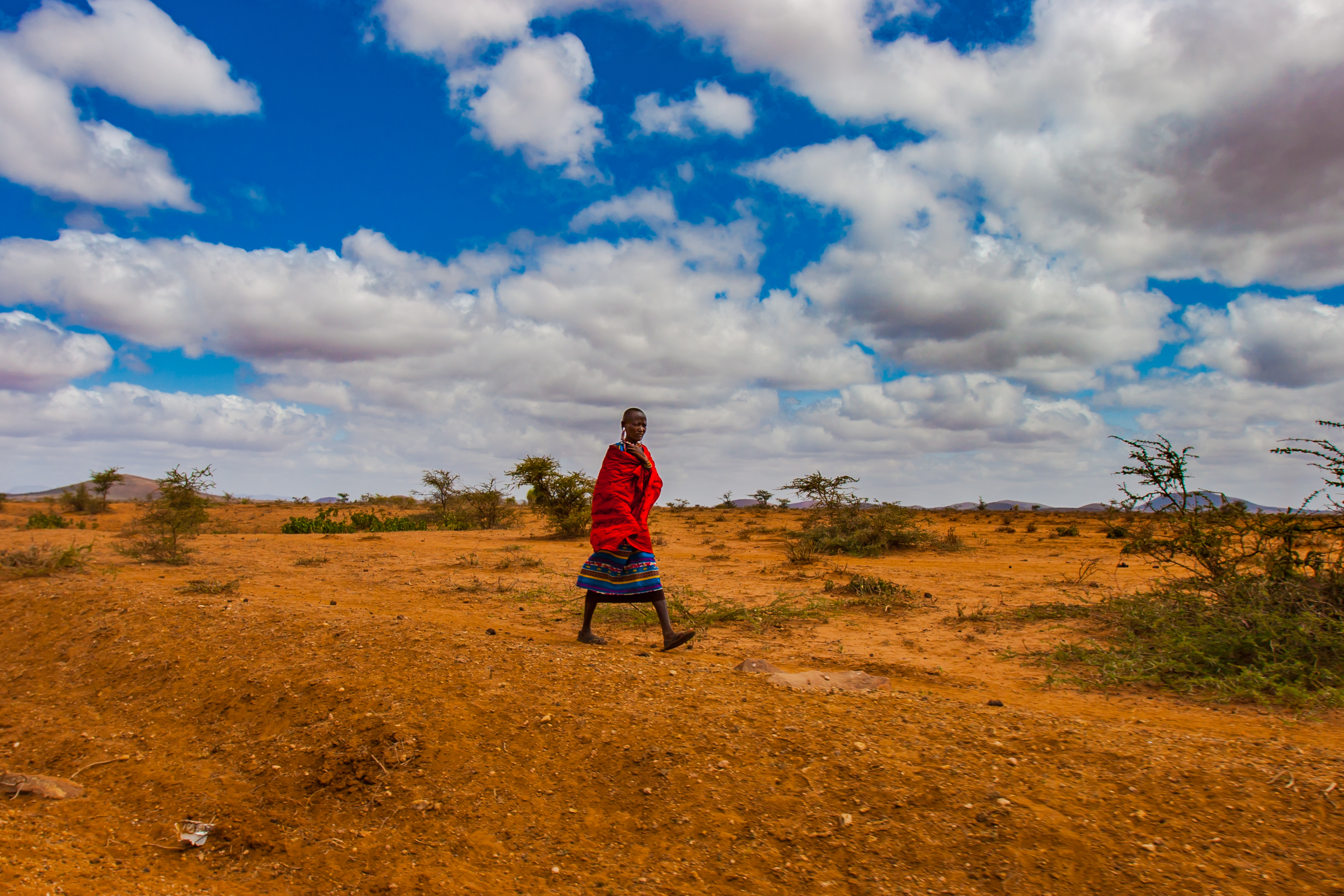
A woman from the Masai Mara tribe in traditional clothing is alone walking near her home.
© ShutterstockWhat are the realities of women and young girls in Maasai communities?
The Maasai community is known globally for its vibrant traditions, culture, and dress code. Behind the beauty of the culture and smiles, women are living in the darkness of poverty and suppressive cultural practices. A Maasai girl is considered a source of wealth for the family, thus “property of her father”, that she can be married off at tender age to an elderly man and in case the husband passes on, she will be “inherited” by her in-laws especially the husbands’ brother or eldest son.
Harmful practice: Maasai girls, as early as 11 years old, are married off by their fathers. The mother is not allowed to challenge the decision. There are cultural expectations that once married, divorce becomes inconceivable. Once married, reproductive decisions are made by the husband.
Education: The majority of Maasai women, especially those 35 years and older, have never been to school. Those who attended schooling only manage to complete primary school level. Female Genital Mutilation (FGM) and child marriages are contributing factors to school retention rate or low progression to higher school levels and tertiary institutions. Women experience discrimination in the Maasai community, which has continued to hamper the realisation of gender equality.
Dialogue on human rights and it's implications to human development index at Rozilini Village ward of Ndument at Siha District in Kilimanjaro region
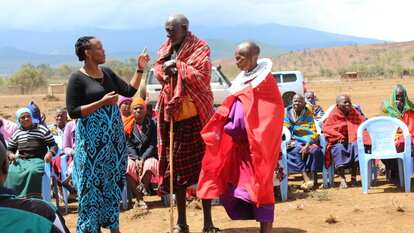
Trainer of the workshop engages with clan leader during the workshop.
© Friedrich Naumann Foundation for Freedom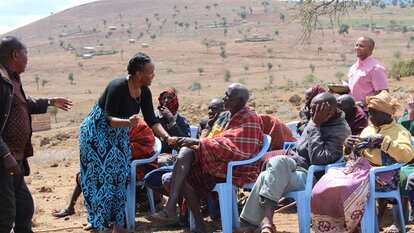
Men were apart of the awareness workshop.
© Friedrich Naumann Foundation for Freedom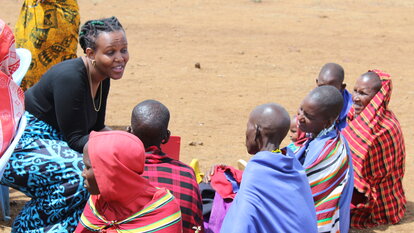
Trainer of the workshop engages with some of the invited participants during the workshop.
© Friedrich Naumann Foundation for Freedom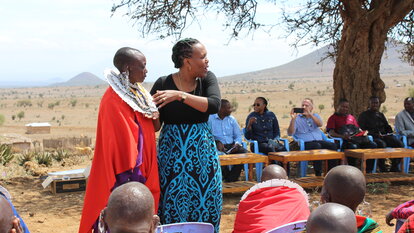
Trainer of the workshop engages with a female leader during the workshop
© Friedrich Naumann Foundation for FreedomThe challenges that exist and how they are being tackled
It is worth noting that several programmes aimed at empowering girls have been initiated through collaborative work with the government of Tanzania, non-government organisations, religious groups, community-based organisations, and human rights groups to address Female Genital Mutilation (FGM), early marriages and school retention. Progress is slow regarding the attitude towards FGM practice. However, some of the initiatives have made young girls practice some self-efficacy. Some of the outcomes of self-efficacy interventions include a change in attitude toward early marriages and the FGM practice. In some instances, girls who have been part of the initiatives have become human rights champions and have been made cultural leaders who use their voices to lead the way against the practice.
Women are the guardians of their families, irrespective of their economic capacity. Households rely on them for food and other responsiblities, yet they have a limited sources of income. The main source of income includes handmade beadwork, especially bracelets. Women are also in charge of the homes and their children, and it is only through a woman's effort that their children go to school. In a situation where the family is not able to sustain basic upkeep, it is the girl child that will not attend school and will be married off for a bride price to keep the family going. The dowry paid in the form of cattle and cash is not only a family incentive to send the girl away, but also the “family burden” of keeping the family member who will not be of benefit in the future (the girl who will be married to another family).
This situation pushes women to find jobs that are not diginified like going to families and asking to do their laundry and menial chores in exchange for food or for as little as $ 0.15 in cash. The Maasai livelihoods that are centered on livestock keeping are impacted by climate change therefore directly affecting the lives of women, who are the caretakers of their husband’s cattle and handle the responsibility to milk them for family food.
In 2022 at least 120 women have been participating in the Friedrich Naumann Foundation for Freedom’s women economic empowerment project designed strategically to improve the economic capacity of girls and older women and to increase awareness and opportunities in tackling the root causes of gender inequality in the patriarchal society. The project aims to empower women with business skills and confidence boosting so that they can become respected entrepreneurs within their patriarchal communities. Women are empowered to use income from their businesses to educate their children and keep them healthy, thus breaking the inter-generational cycle of poverty.
This approach will create synergy and enhance girls’ and women’s self-efficacy, and give them a voice to address the power dynamics and structures that prevent girls and women from realising their right to live free from violence and all forms of discrimination. Through the human rights project, young girls and women have gained knowledge, leadership skills, spaces to challenge harmful social and gender norms in the community, opportunities for civic engagement, and the co-creation of advocacy and social media campaigns by targeting community members, including women, youth leaders, school clubs, religious leaders, traditional leaders, and local government.
